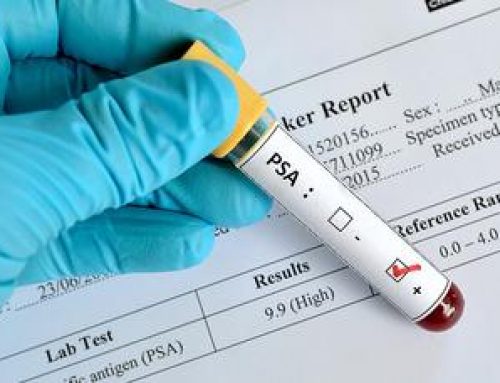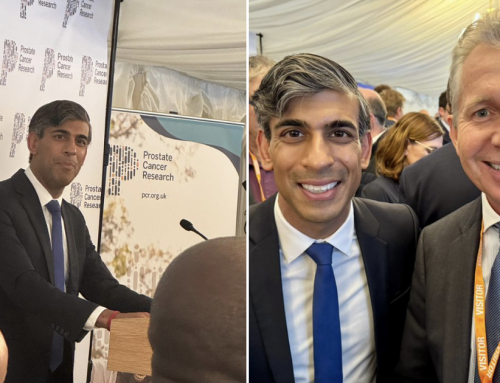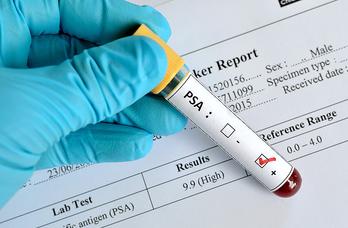
An important Message from Stephen Langley, Professor of Urology & Prostate Project Trustee.
April is male cancer awareness month, so there has never been a better time to highlight some stark facts about prostate cancer, the most common life-threatening cancer in men in the UK with over 45,000 men being diagnosed and some 12,000 sadly dying from the disease every year.
As with most cancers, if caught early, it is usually curable, with some cancers not even requiring treatment, just safe monitoring.
If caught late and spread beyond the prostate then the outlook is more serious. Whilst we have many lines of treatment to use, for some men the disease will prove fatal. The difficulty is that early prostate cancer usually causes no symptoms. The traditional urinary symptoms associated with the prostate such as a poor stream, getting up at night to pass urine and urinary frequency are rarely due to prostate cancer but due to a benign enlargement of the gland which most men develop as they get older.
So, if you want to catch it early you need to be checked!
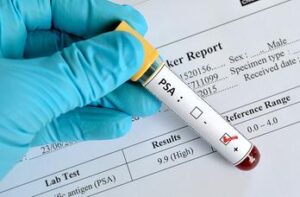 The idea of a rectal examination naturally puts many men off this idea, but as early prostate cancer is often undetectable by a physical examination, we now rely on a simple blood test called PSA, prostate specific antigen. Whilst not perfect, it’s about as accurate as screening mammograms in breast cancer and it is extremely useful in helping to detect early disease.
The idea of a rectal examination naturally puts many men off this idea, but as early prostate cancer is often undetectable by a physical examination, we now rely on a simple blood test called PSA, prostate specific antigen. Whilst not perfect, it’s about as accurate as screening mammograms in breast cancer and it is extremely useful in helping to detect early disease.
If a man has an abnormal PSA test, the next step is to have an MRI of the prostate gland. This non-invasive scan will allow us to reassure approximately 25% of patients that no further tests are required. The remaining patients may be invited to have a prostate biopsy, where under ultrasound control a small sample of prostate tissue is taken for analysis in the laboratory.
Prostate biopsies can be performed under local or general anaesthetic, as a day case or in the clinic.
The Royal Surrey has been a pioneer in prostate cancer detection and the latest biopsy techniques, the Trans perineal biopsy that are now used worldwide were first developed in Guildford.
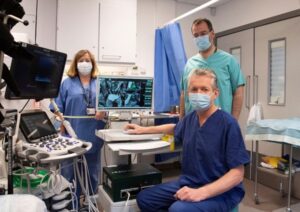
Thanks to the Prostate Project we have the very latest equipment to perform prostate biopsies. Our new fusion equipment superimposes the MRI information on the ultrasound screen, like the heads-up display on an aircraft, allowing pin point accuracy to be achieved.
More and more information from a large European multi-centre study, involving over 180,000 men, has shown the benefit in early detection of prostate cancer using PSA. Since 2005 it has been the right of every man, suitably informed, to have his PSA checked on the NHS and I would encourage all healthy men aged between 50 and 75 to take the test.
Men with a family history of prostate cancer and/or those of African Caribbean dissent are particularly at risk of developing the disease.
If early prostate cancer is detected, there are many very effective treatment options to consider. The Royal Surrey is a leading centre for prostate cancer in the UK, treating more men with early disease than any other unit in the UK, and the results achieved are excellent.
Early low risk cancer can often be merely safely monitored but those patients needing curative treatment have the options of robotic surgery, external beam radiotherapy and brachytherapy, a technique where tiny radioactive seeds are inserted into the prostate. All of these treatments are highly effective in eradicating the disease; our skill is helping to ensure that each patient gets the best treatment for them, with the minimum of side effects.


